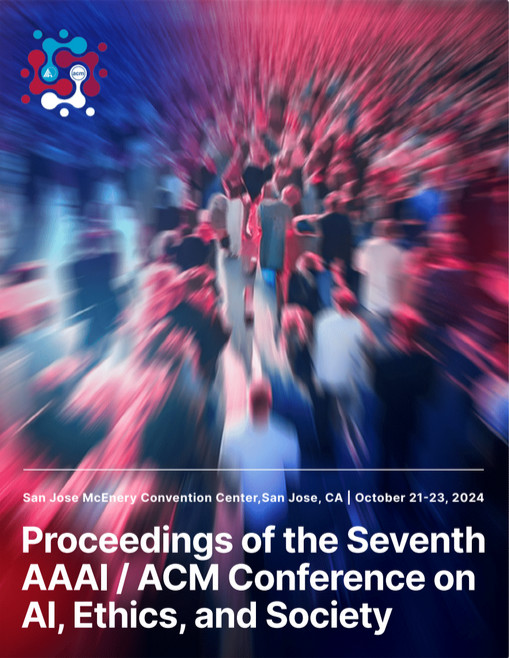Understanding Intrinsic Socioeconomic Biases in Large Language Models
DOI:
https://doi.org/10.1609/aies.v7i1.31616Abstract
Large Language Models (LLMs) are increasingly integrated into critical decision-making processes, such as loan approvals and visa applications, where inherent biases can lead to discriminatory outcomes. In this paper, we examine the nuanced relationship between demographic attributes and socioeconomic biases in LLMs, a crucial yet understudied area of fairness in LLMs. We introduce a novel dataset of one million English sentences to systematically quantify socioeconomic biases across various demographic groups. Our findings reveal pervasive socioeconomic biases in both established models such as GPT-2 and state-of-the-art models like Llama 2 and Falcon. We demonstrate that these biases are significantly amplified when considering intersectionality, with LLMs exhibiting a remarkable capacity to extract multiple demographic attributes from names and then correlate them with specific socioeconomic biases. This research highlights the urgent necessity for proactive and robust bias mitigation techniques to safeguard against discriminatory outcomes when deploying these powerful models in critical real-world applications. Warning: This paper discusses and contains content that can be offensive or upsetting.Downloads
Published
2024-10-16
How to Cite
Arzaghi, M., Carichon, F., & Farnadi, G. (2024). Understanding Intrinsic Socioeconomic Biases in Large Language Models. Proceedings of the AAAI/ACM Conference on AI, Ethics, and Society, 7(1), 49-60. https://doi.org/10.1609/aies.v7i1.31616
Issue
Section
Full Archival Papers

